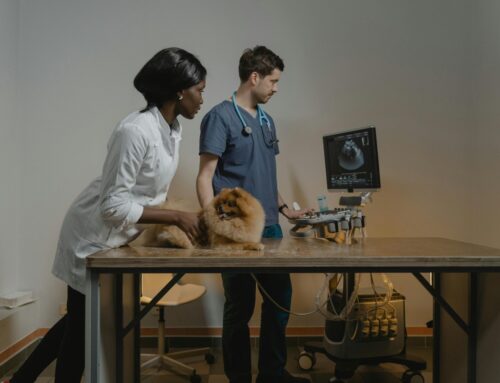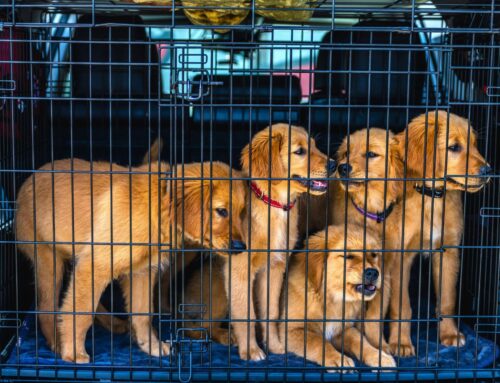When a beloved pet dies, it can feel like the world just collapsed. The grief is often profound, sometimes even surpassing the heartache of losing a person. This might sound surprising to those who haven’t experienced it, but for pet owners, their animals offer a bond that’s difficult to replace. Losing a pet can be devastating, triggering feelings of sadness and emptiness. There’s a reason why some people believe losing a pet is harder than losing a person. The depth of love, loyalty, and companionship they provide can create a pain that feels unmatched when they’re gone.
Unconditional Love and Constant Companionship
Pets Offer Undivided Attention and Unquestioning Support
One of the most beautiful aspects of pets is their unconditional love. They don’t judge you or hold grudges. Their affection remains constant, no matter your mood or circumstances. When you walk through the door after a rough day, your pet is there, greeting you with excitement, eager to provide comfort. They offer unwavering support that’s hard to find elsewhere. Losing this constant source of affection creates a massive void.
In human relationships, love and support often come with conditions. Friends and family may mean well, but relationships with people can be complex and unpredictable. Arguments, misunderstandings, and emotional distance can all weaken connections. Pets, on the other hand, offer simple, unconditional companionship. It’s this steady, dependable love that makes their absence so hard to bear.
Pets Shape Your Everyday Life
The Daily Routine Revolves Around Your Pet
A pet becomes an integral part of your daily routine. From feeding them in the morning to walking them after work, your life adjusts to accommodate their needs. These small, consistent moments create a rhythm in your day. Suddenly, when your pet is gone, your day feels disjointed. You might catch yourself reaching for the leash or expecting the familiar click of paws on the floor, only to remember they’re no longer there. The sudden absence of these routines deepens the sense of loss.
When a person passes away, while deeply painful, the practical impact on your day-to-day routine may not be as immediate or disruptive. Losing a pet can create an emotional and physical void as your everyday life has to be reshaped. Without those daily activities—whether it’s feeding, walking, or playing—life feels oddly empty, and that amplifies the grief.
Why Losing a Pet Is Harder Than Losing a Person: A Pure Emotional Connection
Pets Provide a Judgment-Free Zone
Pets offer a type of emotional connection that feels uncomplicated and pure. With a pet, there’s no need to filter your feelings. You can be sad, angry, frustrated, or elated, and your pet won’t judge you. They’re there, silently offering comfort. This is a kind of emotional freedom that’s hard to find elsewhere. Losing a pet can feel like losing a safe space where you could truly be yourself.
In human relationships, even with close friends or family, there’s often pressure to present yourself in a certain way. You might feel judged or misunderstood at times. Losing a person doesn’t always mean losing that emotional outlet, but when a pet dies, the loss of that pure, judgment-free connection can be deeply painful. Pets don’t give advice or opinions; they just listen and offer quiet support, which makes their death even harder to process.
A Constant, Steady Presence Through Every High and Low
Why Losing a Pet Is Harder Than Losing a Person: Pets Are Always There, No Matter What
Pets are with you through everything—good days and bad days alike. They don’t leave your side when things get tough, and they don’t drift away during the good times either. They’re a consistent source of companionship, always there to celebrate your victories or offer comfort during your challenges. This constant presence is irreplaceable, and losing it can feel like losing a pillar of support.
With human relationships, even the closest bonds can have moments of distance. People have their own lives, their own struggles, and sometimes they can’t be there for you in the same way. Pets, though, are there every day, whether you’re happy, sad, or anywhere in between. When that companionship disappears, the void it leaves can feel enormous, making the grief even harder to navigate.
Society Doesn’t Always Recognize Pet Loss
The Dismissal of Pet Grief
One of the challenges of losing a pet is that society often doesn’t fully understand or acknowledge the depth of that grief. When a person dies, there’s a general expectation that you’ll need time to grieve. You’ll receive sympathy, support, and understanding. But when a pet passes, people may not react in the same way. Comments like “It was just a dog” or “You can always get another one” are not uncommon, and they can feel incredibly dismissive.
This lack of societal validation makes pet loss even more challenging. You might feel like you need to keep your grief private, worried that others won’t understand the magnitude of your pain. This can lead to feelings of isolation. In contrast, losing a person comes with built-in societal support—funerals, memorials, and shared grieving processes. With pets, you might feel like you have to mourn in silence, which can prolong the healing process.
Pets Become Family Members
They’re More Than Just Animals
To many people, pets are not just animals—they’re part of the family. The bond between a person and their pet can be as strong as any human relationship. Pets offer a sense of security, comfort, and love that’s hard to quantify. They become a source of joy and connection, and when they die, it can feel like losing a family member. The grief is real and intense.
For those who live alone or don’t have close family nearby, a pet may represent their most important relationship. This makes the pain of losing them even more acute. The house that once felt full of life can suddenly feel empty and lonely. While some may not understand the depth of this bond, it’s a real and meaningful connection, and the grief that follows their death is often underestimated.
Pet Loss Can Trigger Past Grief
Why Losing a Pet Is Harder Than Losing a Person: Old Emotions Resurface
When a pet dies, it can bring up grief from past losses, both human and animal. Pets are often there for us during some of the most challenging times of our lives. They provide silent companionship when we’re going through breakups, illnesses, or other hardships. When they pass, the emotions we’ve buried or moved past can resurface. This can compound the grief, making the loss feel even more intense.
In this way, losing a pet can feel like the closing of a chapter in your life. The pet that supported you through tough times is no longer there, and their death can symbolize the end of an era. This brings up not just the grief of losing your pet, but the grief of those difficult times as well. The emotional weight of this can be overwhelming.
Pets Give Us a Sense of Purpose
Why Losing a Pet Is Harder Than Losing a Person: Losing Them Means Losing Responsibility
Caring for a pet involves a level of responsibility that gives structure and meaning to your life. You feed them, walk them, play with them, and make sure they’re healthy and happy. This daily routine provides a sense of purpose. When your pet passes away, you suddenly lose that responsibility. The emptiness left behind can be jarring, leading to feelings of aimlessness.
Without the daily care routines, some people experience a deep sense of loss that goes beyond the emotional connection. You’re not just missing your pet; you’re missing the role they played in your life. For some, this can lead to depression, as the loss of responsibility leaves a noticeable gap. Finding a new sense of purpose after a pet dies can be one of the hardest parts of the grieving process.
How to Cope with Losing a Pet
Give Yourself Permission to Grieve
Grieving a pet is a deeply personal and emotional experience, and it’s important to allow yourself to feel the full weight of that loss. Whether through a memorial, a donation in their name, or simply taking the time to reflect on the joy they brought into your life, honoring your pet’s memory can be an important step in the healing process.
There are also many resources available to help you cope with pet loss. Talking to a therapist or joining a support group for pet loss can be incredibly beneficial. If you find yourself struggling, don’t hesitate to reach out for help. Pet loss is real, and your grief is valid. Acknowledging your feelings is the first step toward healing.
Why Losing a Pet Is Harder Than Losing a Person: A Unique Type of Grief
Losing a pet presents its own set of unique challenges. From the deep emotional connection they offer to the daily routines they help shape, pets fill our lives in profound ways. When they pass, the grief can feel overwhelming, often harder than the loss of a person. If you’re grieving a pet, remember that your pain is valid. By understanding the reasons why losing a pet can be so painful, you can start to heal and move forward with compassion for yourself.




